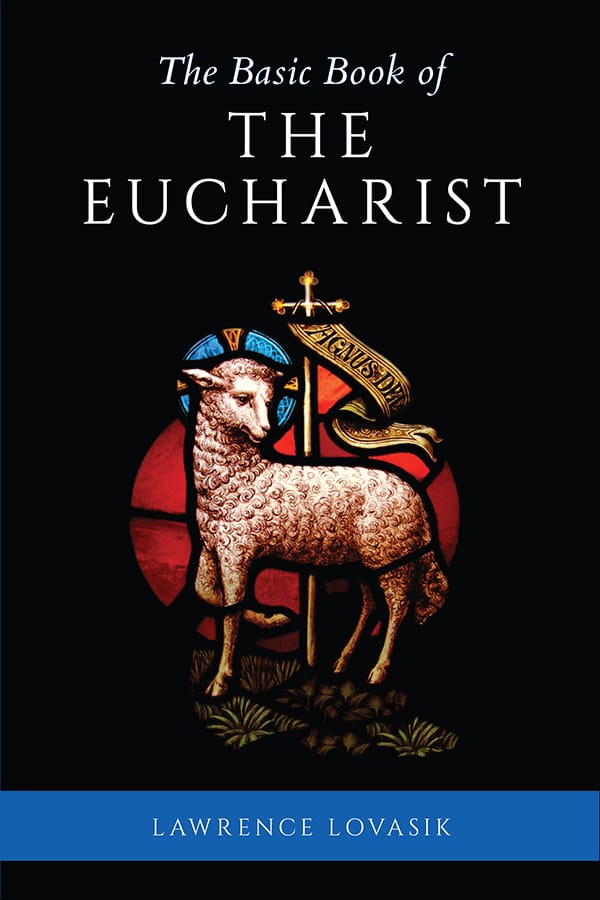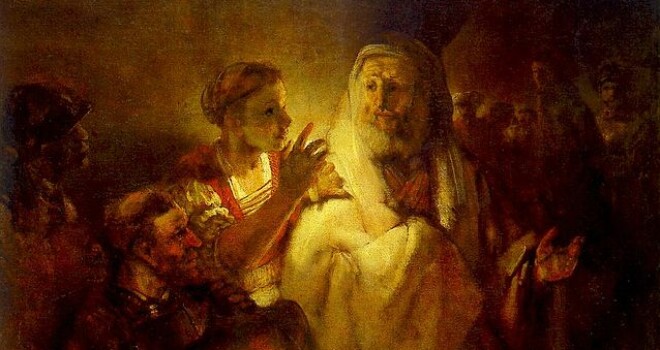Devotion to the Sacred Heart, as we now know it, began about the year 1672. On repeated occasions Jesus appeared to St. Margaret Mary, a Visitation nun in France, and during these apparitions He explained to her the devotion to His Sacred Heart as He wanted people to practice it. He asked to be honored in the figure or symbol of His Heart of flesh; He asked for acts of reparation, for frequent Communion, Communion on the first Friday of the month, and the keeping of the Holy Hour.
When the Catholic Church approved the devotion to the Sacred Heart of Jesus, she did not base her action merely on the visions of St. Margaret Mary. The Church approved the devotion on its own merits. We honor the Sacred Heart not only because every drop of Christ’s Precious Blood passed through it during the thirty-three years of His life on earth; not only because the Sacred Heart throbbed in closest sympathy with every movement of joy or sorrow, pity or love in our best Friend, but we honor the Sacred Heart of Jesus because of its intimate union with His divinity. There is only one person in Jesus, and that person was at the same time God and man. Therefore every part of His body was human and divine. His Heart, too, is divine; it is the Heart of God.
Devotion to the Heart of Jesus alone, as a noble part of His sacred body, would not be devotion to the Sacred Heart as understood and approved by the Church. There are two things that must always be found together in the devotion to the Sacred Heart: Christ’s Heart of flesh and Christ’s love for us. True devotion to the Sacred Heart means devotion to the divine Heart of Christ insofar as this Heart represents and recalls His love for us. It means devotion to the love of Jesus Christ for us insofar as this love is recalled and represented to us by His Heart of flesh.
In his great encyclical letter on devotion to the Sacred Heart, Pope Pius XII explained the real nature of devotion to the most Sacred Heart of Jesus in the light of divine revelation, its chief source, and the graces that flow from it. He said, “We think that Our statements, confirmed by the teaching of the Gospel, have made it clear that essentially this devotion is nothing else than devotion to the human and divine love of the Incarnate Word and to the love which the Heavenly Father and the Holy Ghost have for sinful men. For, as the Angelic Doctor teaches, the first cause of man’s redemption is the love of the August Trinity. This love, pouring forth abundantly into the human will of Jesus Christ and His Adorable Heart, moved Him to shed His Blood to redeem us from the captivity of sin.”
Devotion to the Sacred Heart bears something that is universal. In honoring the Heart of Christ, it is no longer on Jesus as infant, youth, or victim that our homage lingers but on the Person of Jesus in the fullness of His love.
Being directed to the love of Christ for us, our devotion to the Sacred Heart finds and sees in Jesus everything connected with His love for us. This love of Christ for us was the moving force of all He did and suffered for us — in the manger, on the Cross, in giving Himself in the Blessed Sacrament, in His teaching, in His praying, and in His healing. So when we speak of the Sacred Heart, we mean Jesus showing us His Heart — Jesus all love for us and all lovable.
Love Christ’s Sacred Heart in the Eucharist
Devotion to the Sacred Heart in the Eucharist consists in two essential facts: love and atonement.
Love is the first and foremost of these duties. Love is the Lord’s first and greatest commandment, the bond of perfection. God asks for our love because He wishes to be the God and Master of our hearts through love. Sacrifice is but a means to prove our love and loyalty. Our Lord has loved us with an infinite love, even unto death, and still loves us without limit. He wants to be loved by us. He appeals to our hearts and bids us love Him in return.
St. Margaret Mary writes, “He made me see that it was the great desire He had of being loved by men, and of withdrawing them from the road of perdition, that induced Him to conceive this plan of making His Heart known to men, with all the treasures of love, of mercy, of grace, of sanctification, and of salvation, in order that those who wish to render and procure Him all the honor, glory, and love of which they are capable, might be abundantly and profusely enriched with the treasures of the Heart of God.”
In another letter, she writes, “Let us, then, love this, the only love of our souls, since He has loved us first and loves us still so ardently that He continually burns with love for us in the Blessed Sacrament. To become saints it suffices to love this Holy of Holies. What shall hinder us? We have hearts to love and a body to suffer. . . . Only His holy love can make us do His pleasure; only this perfect love can make us do it in His own way; and only this perfect love can make us do it in His own acceptable time.”
This act of love is highly sanctifying. By uniting you intimately to the Sacred Heart of Jesus, love will make you share in His virtues and give you the strength to practice them in spite of all obstacles. To know and love Jesus Christ is your highest gain both for time and eternity. No sacrifice can be too great to attain it. You have true wisdom, holiness, and happiness insofar as you know and love Jesus Christ.
Make atonement through the Eucharist
The second essential act of devotion to the Sacred Heart is atonement. The love of Jesus is dishonored by the ingratitude of men, as He Himself declared in the third great apparition to St. Margaret Mary: “Behold this Heart which has so loved men that it has spared nothing, even to exhausting and consuming itself, in order to testify its love. In return, I receive from the greater part only ingratitude, by their irreverence and sacrileges, and by the coldness and contempt they have for me in this Sacrament of Love.”
Then He asked her to atone for these ingratitudes by the ardor of her own love: “My daughter, I come into the heart I have given you in order that through your fervor you may atone for the offenses which I have received from lukewarm and slothful hearts which dishonor me in the Blessed Sacrament.”
Your devotion to the Sacred Heart should be an act of reparation and atonement for your own ingratitude and the ingratitude of all men for the love He has for us, above all in the Blessed Sacrament.
Receive Holy Communion often, especially on the first Fridays of nine consecutive months; spend some time before the Blessed Sacrament; perform little penances to prove by your actions that you want to make reparation. Make a holy hour some day or evening before the Sacred Heart in the tabernacle. Your love will be reparation for all human forgetfulness of His love. The Sacred Heart will never be outdone in love and generosity to you.
Frequent Holy Communion — together with the Mass — is by far the easiest and most perfect form of reparation you can offer to God. When you receive Holy Communion, you make an act of faith, for your presence at the Lord’s Table is proof of your belief that Jesus is truly present in the Blessed Sacrament.
You make an act of hope, because you believe in our Lord’s promises and hope for the graces attached to receiving Holy Communion. You make an act of love, for by receiving Holy Communion, you are pleasing Jesus, who has instituted this great Sacrament of Love for us. You make an act of humility, for you acknowledge your need of and dependence on God and the spiritual strength received through the Eucharist. You offer to God a pure and holy sacrifice most pleasing to His divine majesty.
Holy Mass and Communion are the greatest spiritual weapons God has placed at our disposal to help bring about peace. They are far more powerful than all atom and hydrogen bombs, guided missiles, guns, planes, tanks, and ships combined. Many times during his pontificate, Pope Pius XII urged frequent reception of Holy Communion, stating, “Men will always find the best remedy against serious evils in the Eucharist. . . . Only through frequent reception of our Divine Lord will they have the strength to help a world darkened by ignorance and gripped in the ice of indifference.”
Our Lady of Fatima appealed for frequent Communion as a counteroffensive against Communism and the forces of evil. At Fatima, Portugal, in 1917, the need was clearly stated for making reparation to Almighty God, in order to appease His just wrath, aroused by the many horrible sins and sacrileges committed against Him. On one occasion, the guardian angel of Portugal appeared to the three children, bearing a golden chalice in one hand and a Host in the other. The amazed children noticed that drops of blood were falling from the Host into the chalice. Then the angel left both suspended in midair and prostrated himself on the ground, saying this beautiful prayer: “Most Holy Trinity — Father, Son, and Holy Spirit — I adore You profoundly. I offer You the most precious Body, Blood, Soul, and divinity of Jesus Christ, present in all the tabernacles of the world, in reparation for the outrages, sacrileges, and indifferences whereby He is offended. Through the infinite merits of His Most Sacred Heart and the Immaculate Heart of Mary, I beg of You the conversion of poor sinners.”
If we could get even a majority of Catholic men, women, and children to offer each reception of the Eucharist in reparation for the sins of the world, in reparation for their own sins, and for the conversion of the world, we would help offset to a great extent the hatred of enemies who are trying to destroy God’s Church. For the sake of this love, God would shower mercy on them instead of justice, and would pour graces into their hearts to see the error of their ways.
This act of atonement is highly sanctifying. Atonement will further enkindle your fervor by enabling you to sympathize with the sufferings of Jesus. It will help you to endure all the trials that God may send you; for love of Him and in union with His sufferings, it will bring peace to the world. Thus, devotion to the Sacred Heart demands a blending of love and sacrifice, and this is the very spirit of Christianity.
Editor’s note: This article is adapted from a chapter from The Basic Book of the Eucharist, available from Sophia Institute Press.
image: By Nheyob [CC BY-SA 3.0], from Wikimedia Commons




